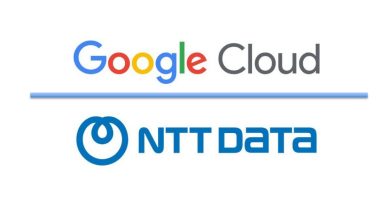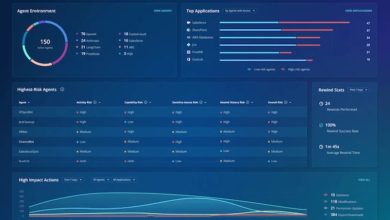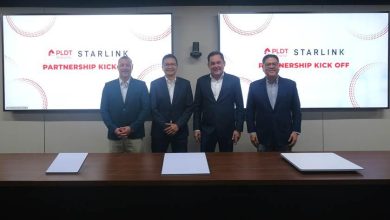HubSpot Research: Singapore’s Digitally Advanced Businesses 10x More Likely to Report Strong Growth
While Most Businesses in Singapore Have Digitalised, Only A Few Are Unlocking Full Value—and Integration, AI Maturity, and Leadership Alignment Are the Key Factors That Separate the Top Performers from the Rest

Despite ongoing economic uncertainties, digitally advanced businesses in Singapore are reporting significantly better performance against their industry counterparts according to new research from HubSpot. The findings also suggest that competitive advantage is also determined by digital maturity, which affects how quickly businesses can execute on their digital investments.
HubSpot’s findings were based on research commissioned by HubSpot and conducted by Lonergan Research, which surveyed 544 Singaporean Business Leaders in non sole trader organisations. The HubSpot survey was conducted online in Singapore amongst members of a permission-based panel, between 14 to 25 April 2025. Data has been weighted to the latest population estimates sourced from the Ministry of Manpower.
According to the HubSpot study, businesses in Singapore have been building digital capabilities that allow them to remain competitive. More than nine in ten (91%) businesses are today operating with some level of digitalisation, but not all of them are unlocking optimal value from their technology deployments. The research found that more digitally mature businesses in advanced stages of Artificial Intelligence (AI) implementation are five times more likely to report strong performance. This increases to nine times for fully digitalised businesses, while organisations with fully integrated systems are ten times more likely to report significantly outperforming their peers.

“In today’s dynamic and highly competitive business environment, agility is everything. The difference between a thriving business and one merely keeping the lights on comes down to how quickly they can adapt to changing market conditions, make the right decisions, and execute. Closing the digital performance gap requires investment into integrating systems and augmenting teams with AI capabilities, giving rise to operations that scale efficiently,” said Carol Fong, Head of Asia at HubSpot.
Integration Accelerating Agility and ROI on Technology Implementations
HubSpot found that while most businesses in Singapore have embarked on their digital transformation, findings point to a technology integration gap that would affect their ability to fully capitalise on digital tools. While nine in ten (90%) businesses currently have some level of integration of core business systems, less than a fifth (15%) are fully integrated.
Beyond business performance, more digitally mature businesses are able to execute faster, accelerating their return on investment (ROI) on new technology implementations. This has immense implications on growth potential, with findings indicating that fully integrated companies are three times more likely to realise their ROI within a month. This is a significant improvement on the average timeframe of just over five months for ROI on new technology investments.
“Tech stacks are growing, and can often become unnecessarily complex, cause friction between teams, and impact visibility across the organisation. The gains of digital adoption are maximised when systems are integrated and data is accessible across teams. This empowers organisations with the speed, coordination, and scalable execution necessary to bridge potential and business performance,” said Fong.
Singapore-headquartered delivery experience platform Parcel Perform is a real-world example of a business that benefited from consolidating digital solutions and data flows into a single, integrated system. Earlier in their digitalisation journey, their teams found themselves managing disconnected spreadsheets and juggling multiple tools. Data was inconsistent and underutilised, impacting marketing and sales efforts. Integrating systems and teams onto a single platform gave rise to better cross-functional alignment and quality data, allowing the team to focus on creating value across sales, marketing, and customer experience.
AI Success Depends on Robust Data and Integrated Digital Foundation, Says HubSpot
Integration can also have an impact on AI outcomes, HubSpot found. AI has been championed by the Singapore government as a strategically important tool for business growth and competitiveness, with numerous initiatives to accelerate its adoption. This may have contributed to more than eight in ten (83%) businesses having adopted AI.
However, HubSpot found that less than a fifth (16%) of businesses are currently at an advanced stage of implementation—the use of AI across multiple business functions. Findings also point to only 6% of companies in the early stages of adoption being fully integrated, an indication that AI initiatives may have stalled due to fragmented data as a result of integration challenges. AI is only as powerful as the data it has access to, and quality data requires unifying tech stacks and data flows across the organisation.
This is a critically important digitalisation gap to close as advanced adopters of AI are reporting significantly better business results. 25% of businesses with advanced AI systems are seeing immediate positive ROI on new investments, compared to just 1% for businesses in early stages of adoption, and are almost twice as likely to report stronger company performance.
Leadership Alignment Determines Speed of Execution
The HubSpot research finds that as businesses in Singapore become more digitally mature, their barriers tend to shift from infrastructure or technology limitations to internal bottlenecks. These barriers include lack of leadership buy-in as well as slow decision-making.
Findings indicate that these internal roadblocks become more pronounced as businesses mature digitally. Close to four in ten (39%) fully digitalised businesses cite slow decision-making as their biggest growth barrier, with one-third (33%) also flagging leadership hesitancy. In contrast, only 24% of partially digitalised businesses report similar leadership challenges.
This could have contributed to a slower pace of technological maturity. Among advanced AI adopters, 37% face slow implementation not due to tech readiness, but leadership and alignment issues.
“We see this pattern repeatedly—businesses invest in advanced technology but then hit an internal ceiling. This signals a critical truth—technology adoption without leadership alignment doesn’t work,” said Fong. “When leaders hesitate or decision-making processes remain slow, even the most sophisticated systems in the world can’t move the needle. The most successful digital-first companies today are likely those where an empowered leadership is driving urgency from the top.”

Economic Headwinds Driving Urgent Need for Agile Operations
Leadership alignment will be especially important amidst ongoing economic headwinds. The agility that digital tools can provide to businesses enables them to pivot away from disruption, or to capitalise on growth opportunities.
HubSpot’s findings indicate that nearly three quarters (74%) of businesses have become more cautious due to economic uncertainties. Barriers to growth persist, with the top challenges cited by local businesses including economic uncertainty (45%), limited capital (35%), complexity of technology integration (32%), and talent shortages (32%).
Analysing the top growth priorities among businesses for the next 12 months, local organisations are focusing on enhancing operational efficiency (38%), implementing AI or automation (36%) and improving sales processes (34%). These are all areas that can benefit from the right application of digital tools.
When asked by HubSpot what resources would be most helpful to achieve growth goals, businesses agreed that upskilling employees for digital transformation was their top concern (53%). This indicates that successful digitalisation is not only about adopting the latest technologies, but also nurturing teams that have the requisite skillsets to most effectively use these digital tools for the best outcomes, giving rise to more agile, responsive operations.
Government Support Enables Rapid Digital Transformation—HubSpot
Government-led efforts have played a key role in the digital transformation of Singapore’s businesses. Close to nine in ten (89%) businesses report that government support has had a positive influence on their technology investments. Today, local businesses can leverage numerous programmes such as the Enterprise Development Grant, Enterprise Compute Initiative, and SkillsFuture that have been designed to accelerate adoption and reduce barriers to digitalisation.
However, the level of influence varies by company size. Large enterprises with more than 200 employees are more effectively leveraging government support (93%), with a slightly less pronounced impact observed among smaller businesses with 19 employees and below (86%).
“While Singapore’s government has been proactively supporting digital transformation for enterprises, smaller businesses often face a fundamental challenge: digitalisation may initially increase operating costs rather than providing immediate returns. More targeted support specifically designed for smaller businesses—with structured guidance toward digital adoption—would help these companies adeptly navigate the digital landscape. This will enable small businesses to more effectively digitalise and stay competitive amidst economic changes,” said Dato Seri Ashraf Bakar, Council Member, Association of Trade and Commerce (ATC) Singapore.
HubSpot Finds the Window for Competitive Advantage Narrowing
While economic uncertainty inevitably affects all businesses today, key factors are separating digitally mature performers from the rest of the pack. Those displaying integrated systems, advanced AI tools, and an aligned leadership are moving ahead rapidly at the expense of others struggling with digitalisation at scale.
Amidst persistent economic headwinds, growth will increasingly depend on a business’ ability to quickly build integrated capabilities before competitors establish an insurmountable lead. The most successful businesses in Singapore’s evolving landscape will be those that have eliminated friction from their operations, empowered their teams with AI, and built systems that can turn uncertainty into competitive opportunities.
For more information, download The State of Business Growth in Singapore in 2025 report from HubSpot here.




